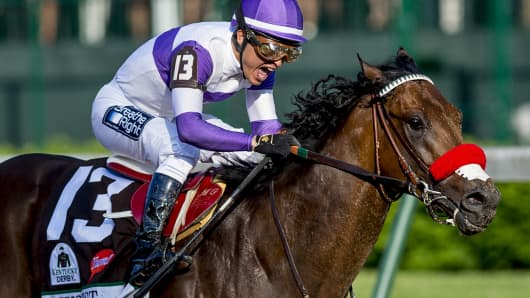Kentucky Derby winner Nyquist is a strong favorite to win Saturday's Preakness, but there's a better strategy than wagering on him to win.
To take advantage of the so-called dumb money being bet this weekend, the smarter bet to make is for him to place. That means you'd make money if Nyquist finishes first or second.
The place bet is how a pro trader would bet the Preakness.
This is a rare opportunity because in a Triple Crown race there is so much money coming in from people who aren't pro gamblers. Most of the $50 million bet on the Preakness is from casual bettors, who place bets only a couple times a year. It's these casual traders who you can take advantage of.
Bill, Walter and Tom Hessert are brothers who founded Derby.com, a social-based horse race betting platform. They offer legal wagering on the Preakness and other live U.S. races. Their data on hundreds of thousands of historical races have given them insight on what bets you should — and should not make. One example is the free option on Nyquist.
As a result of Nyquist's extreme success and popularity, the odds are going to get skewed to such a degree that you can feel confident in making a strong trade.



